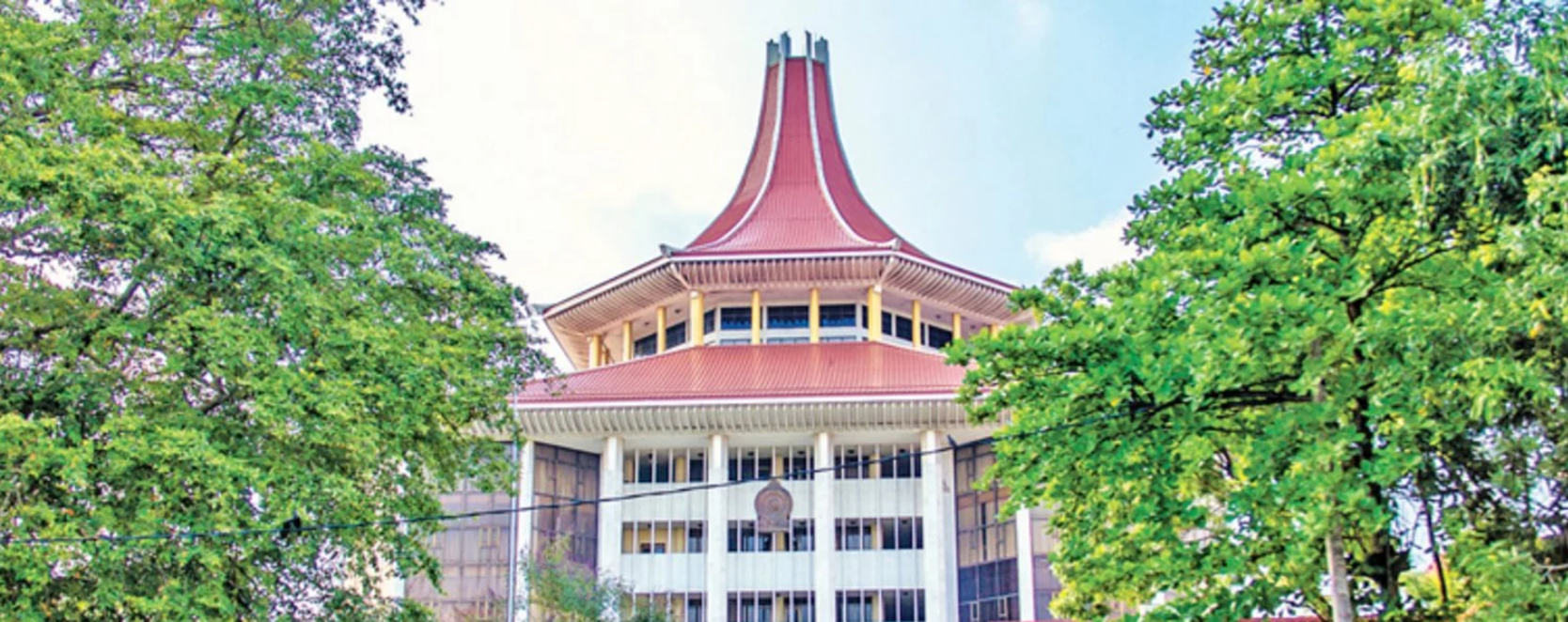By S.S. Selvanayagam
A five-judge bench of the Supreme Court yesterday heard presentations from four petitioners, including the Centre for Policy Alternatives (CPA), the United National Party (UNP) and the Samagi Jana Balawegaya (SJB) who had filed petitions appealing for the Court to take action against the proposed Port City Commission Bill.
The petitioners appealed for the Court to find the Bill in contravention of the Constitution and have it withdrawn, or mandate it be passed with two-thirds approval of Parliament and require a referendum before becoming law.
The court fixed further hearings from other petitioners today. In total 19 political parties, individuals and organisations have presented petitions against the Bill to the Supreme Court.
The bench comprised Chief Justice Jayantha Jayasuriya, P.B. Aluwihare, Priyantha Jayawardena, Murdu N.B. Fernando and Janak De Silva.
K. Kanag-Iswaran PC instructed by Moahan Balendra appeared for the CPA. He submitted that the Port City Commission Bill undermines the control of Parliament as the custodian of public finance, adding that the Bill exempts regulatory oversight of offshore banking and other industries, which could lead to money laundering and other fraudulent activities in the proposed Special Economic Zone.
He further submitted that it is beyond the competence of Parliament to enact this Bill into law as a matter of applicable law. The third part of his submissions is predicated on the basis that the Bill in general is inconsistent with the Constitution in its present form.
He stated the Bill attempts to add to the sovereign territory of the Republic of Sri Lanka, as declared and delineated in Article 5 of the Constitution, an artificially created area of land seeking to confer on it the status of ‘sovereign territory of the Republic of Sri Lanka’ and claiming title thereto.
M.A. Sumanthiran PC with Dr. Gehan Gunatillake appeared for petitioner Gamini Viyangoda. Presenting his points, Sumanthiran noted that the Bill awards excessive powers to the Port City Commission that go beyond the Constitution, which could result in the project having the status of a separate country.
“The phrase ‘advancement of the national economy’ appears no less than 15 times in the Bill. Almost as if to pull the wool over the eyes of the public. Whatever national economy that it might advance, it is certainly not Sri Lanka’s national economy. The Bill does not advance the national economy, it undermines it – and does so in a spectacularly unconstitutional manner,” Sumanthiran told the court.
The Colombo Port City Economic Commission is vested with a variety of wide ranging powers and responsibilities under clause 6, he said. Clause 52 of the Bill, the petitioners argued, vested the Commission with extraordinary authority to identify ‘Businesses of Strategic Importance’ in consultation with the President or the relevant minister. However, once such Businesses of Strategic Importance are so identified, he noted, that the Commission may under Clause 53 of the Bill recommend the granting of tax exemptions and other incentives for a period of up to forty years.
Ronald Perera PC, Eraj De Silva and Shantha Jayawardena also made submissions. De Silva, representing the UNP, noted that the Bill removed parliamentary oversight from the commission and also separated its auditing requirements from the Auditor General. Other petitioners also pointed out that Parliament had not been given the right to oversee appointments made to the Port City Commission.
The 19 petitions submitted against the Bill include those by UNP Chairman Vajira Abeywardena, UNP General Secretary Palitha Range Bandara, former Janatha Vimukthi Peramuna (JVP) MP Wasantha Samarasinghe, the Bar Association of Sri Lanka (BASL), the Centre for Policy Alternatives (CPA), General Secretary of Samagi Jana Balawegaya (SJB) Ranjith Madduma Bandara, and IT Professionals Association Chairman G. Kapila Renuka.
Original post: DailyFT
